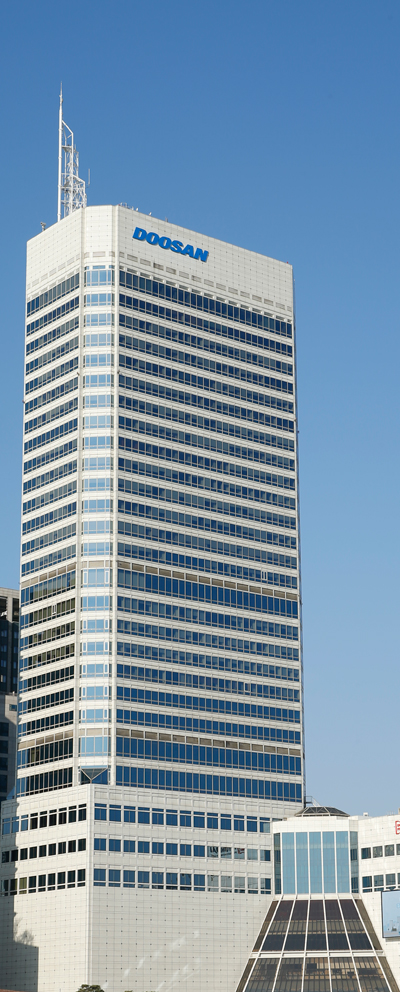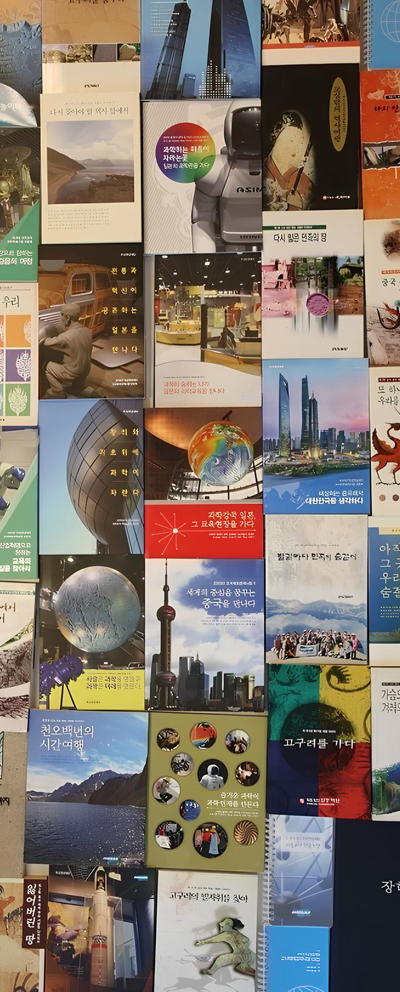
- Doosan Enerbility
- Doosan Bobcat
- Doosan Mottrol
- Doosan Fuel Cell
- Doosan Tesna
- Doosan Robotics
- Doosan Mobility Innovation
- Doosan Logistics Solutions
- Doosan H2 Innovation
- Doosan Investments
- Oricom
- Hancomm
- Doosan Magazine
- Doosan Bears
- Doosan Cuvex
- Doosan Corporation Electro-Materials BG
- Doosan Corporation Digital Innovation BU
- Doosan Corporation Retail BU
- Doosan Yonkang Foundation
- Doosan Art Center
- Doosan Business Research Institute


Press Release
- Formed industry-academic partnership with U.S.-based Stanford University HAI Research Institute… Driving joint research, talent acquisition, etc.
Doosan is making full-scale investments in the physical AI field in the AI transformation era.
On the 13th, Doosan announced that it will establish the ‘PAI (Physical AI) Lab’, a dedicated organization taking charge of the group’s physical AI innovation, within the holding company. Leading the intelligentization of various hardware for business areas that Doosan is leading, such as robots, construction equipment, and power generation equipment, the PAI Lab will establish a long-term roadmap for physical AI innovation and develop advanced technologies to implement the roadmap, as well as pursue extensive collaboration and investments with select companies.
Physical AI refers to AI with human-level decision-making capabilities being applied to real hardware such as functional machines or robots to recognize situations, make judgments, and perform actions in various work environments. Unlike general AI technologies and products that are being developed and spearheaded by global Big Tech, physical AI to be applied in industrial sites requires specialized knowledge, data, and abundant experience in the field possessed only by companies actively engaged in the relevant business.
Doosan plans to preemptively invest in and implement physical AI related to its active main business areas to take the lead in the physical AI ecosystem.
Having recently announced its vision to be an ‘intelligent robot solution company’, Doosan Robotics is expected to evolve its products from the concept of simple repetitive work assistance equipment to robot solutions capable of flexibly responding to irregular work environments based on advanced cognition, judgment, and interaction when integrating physical AI.
Doosan Bobcat, which has always projected its vision of unmanned/automated operation by introducing autonomous driving concept products through events like CES, is making real strides in its goal to evolve into an autonomous operation model where machines plan and execute tasks autonomously through physical AI, surpassing the level of autonomous driving. Doosan Enerbility’s power generation equipment business unit is expected to develop physical AI to be applied to major devices in power plants that interact with one another to make judgments autonomously and maximize energy production efficiency.
As part of this physical AI initiative, Doosan recently formed an industry-academia cooperation partnership with U.S.-based Stanford University’s Human-Centered AI Institute (HAI). The event was attended by Geewon Park, Vice Chairman of Doosan Group, and James Landay, Co-Director of the HAI Research Institute.
Stanford University is one of the world’s top universities in the field of AI, and HAI was established in 2019 with the goal of ‘improving human life through AI.’ Doosan is the first industrial materials company among global companies that HAI has formed an industry-academic cooperation with, and the two parties will pursue technological cooperation and knowledge transfers through various joint research and human exchanges focused on physical AI. Additionally, Doosan plans to build a far-reaching network with world-class global talents in the AI field and engage in recruitment by leveraging this partnership.
Doosan also plans to continuously expand strategic cooperation and investment with global startups involved in AI. Each company, including Doosan Robotics and Doosan Bobcat, has actively been investing in and collaborating with select startups and specialized companies, and PAI Lab will provide integrated support at the group level for discovering and strategically investing in startups with proven technologies with the aim of sustaining long-term technological competitive advantage. In particular, it will focus on areas that are key to adopting physical AI, such as robotics, controls, sensor fusion, and simulation, and drive technology internalization and ecosystem expansion throughout the group.
A Doosan official said, “We plan to recruit a guru-level talent from the global AI academia and industry sector and take a leadership role to advance the PAI Lab,” and “With the PAI Lab at the core, we aim to make innovative strides in the physical AI market related to each company’s business area through organic collaboration with each of our affiliates, and expect it to accelerate the discovery of new business models and business portfolio expansion.”
▲ At the industry-academia cooperation agreement ceremony held at Doosan Tower in Dongdaemun on April 25, Doosan Group Vice Chairman Geewon Park (left) and Stanford University HAI Research Institute Co-Director James Landay (right) take a commemorative photo.















